The Challenge to Solve
- People worldwide have to move to new locations, and they always want to modify their new dwellings. They want to make them comfortable and personalized. People are moving from city to city, from country to country, which makes the application a potential hit of a large market.
- Even without moving to new places, people often want to change something in their dwellings. Some important events may make people want to change the decoration in their houses, apartments, and so on. Such events as marriage, divorce, finding a new job, having a baby, midlife crisis, moving to a college can account for the need for change.
- Many people have certain budgets but lack for ideas to be able to decorate their rooms, houses with funds available. The application can be further developed and decorate rooms with furniture and accessories available. People will be able to redecorate their dwellings very often.
- The cost-effectiveness of the application makes it an attractive product to develop and market. The application’s cost is not very high while the revenue may be significant due to the size of the market and the trends existing in the society.
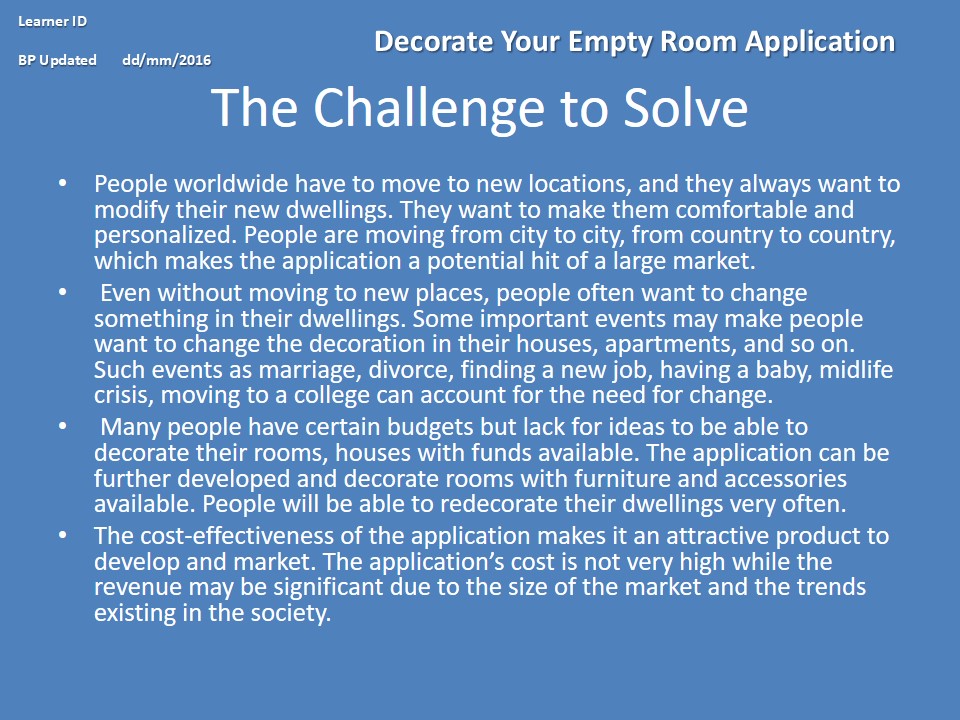
LifeDecor: Decorate Your Room App
- Provides options to decorate different types of rooms (living room, bathroom, kitchen, etc.).
- Provides data on items available (online stores) with the option to choose by price.
- Users share their decors (photos of their rooms or digital variants).
- Users can sell their ideas to other users.
Value propositions: People are looking for creativity and variety of options at affordable prices.
Customer segments: The mass market includes people between 20 and 60 years old. The majority of users may be females. People of all professions can use the app.
Customer relationship: Users get automatized services, but they can also receive some self-service options, through the option of creating one’s own styles, buying from e-commerce companies.
Channels: Apart from mobile app channel, e-commerce companies can also advertise the product.
Revenue streams: Premium subscription may include such services as becoming a designer (ability to sell one’s designs), having discounts for furniture and accessories.
Key partners: Suppliers of furniture and accessories (they can provide funds for allocation of items).
Cost structure: Marketing can require significant investment (e-commerce companies).
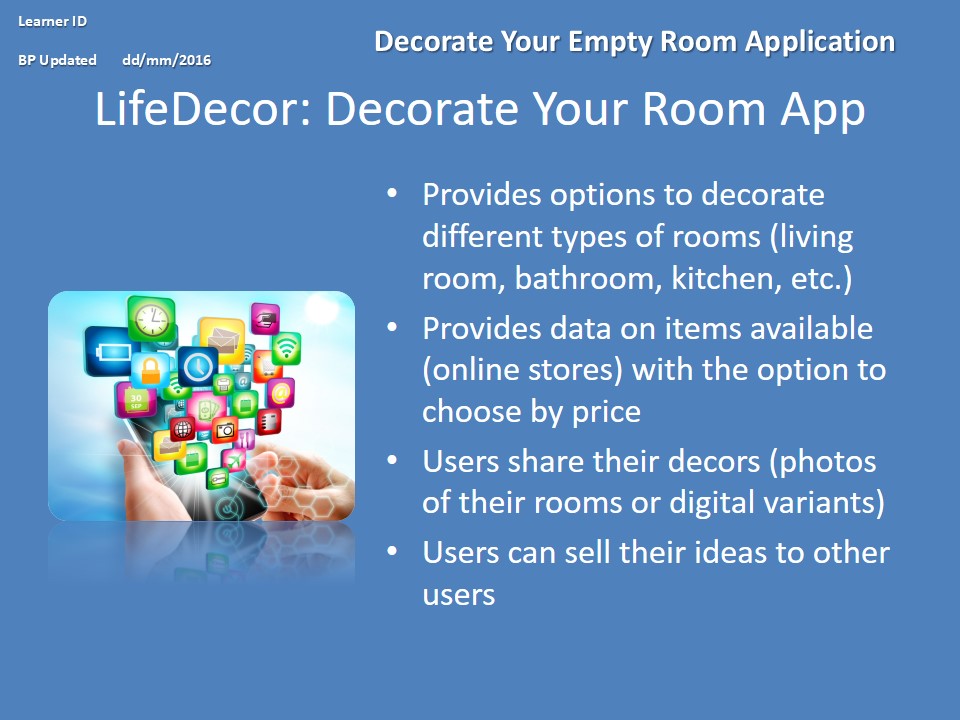
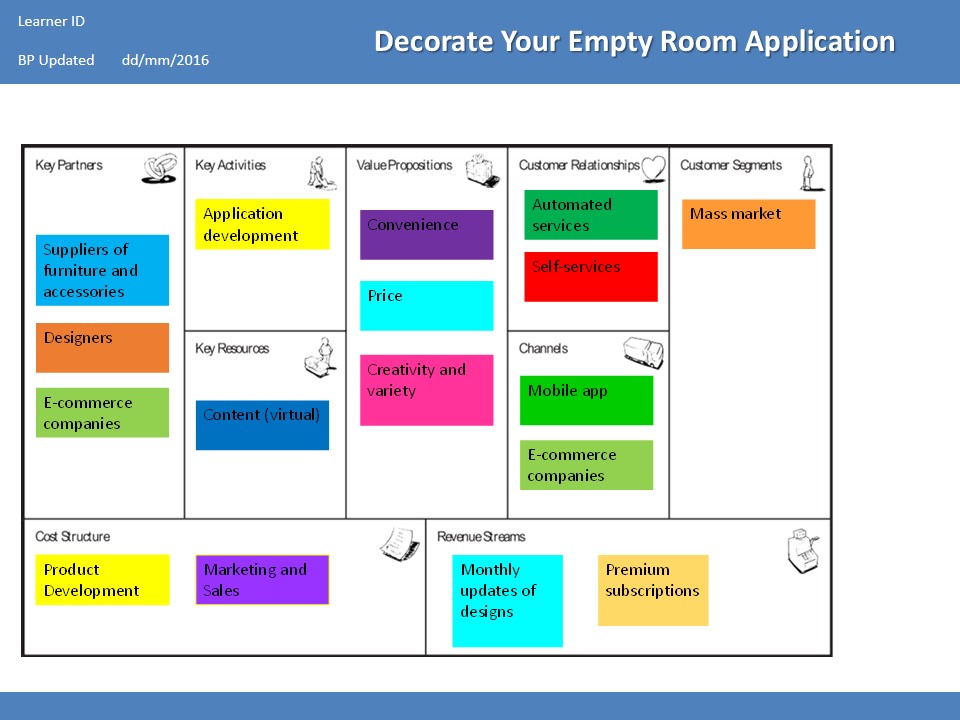
The segment of the customer can be referred to as Apps and Social Networks Lovers. These are people (of different ages and backgrounds) who are keen users of various mobile applications. These people value sharing ideas, connectedness and convenience. An important aspect quite recurrent is the change. Ardent users of apps and the Internet often look for options to carry out the changes in their life (moving, breaking up, moving together, going to college, etc.). The app in question is perfect for such people.
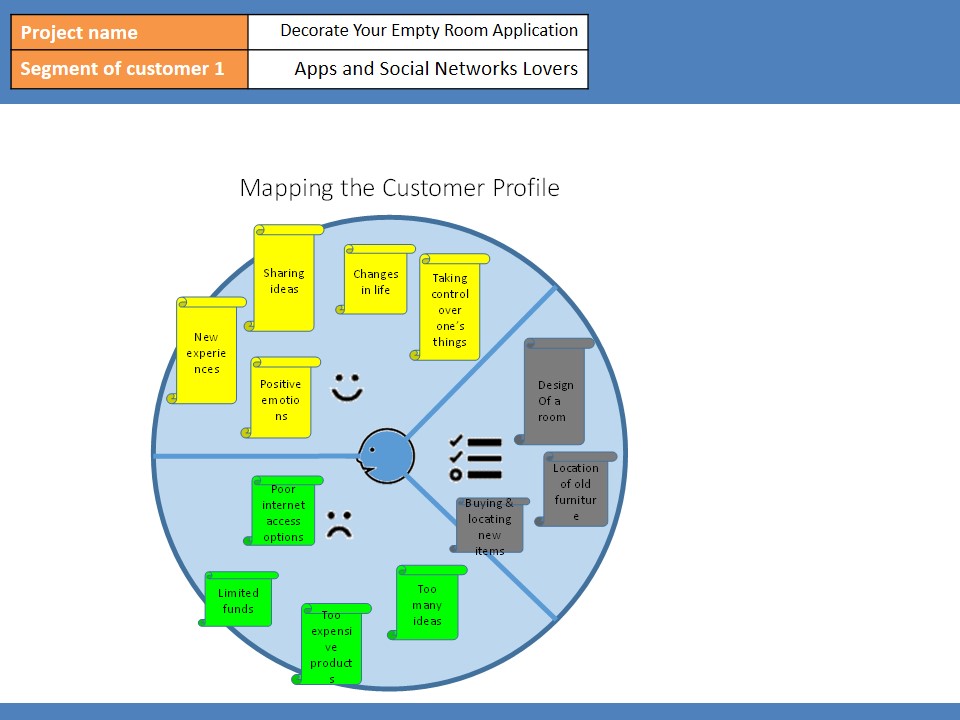
The target audience of the product is very wide, but this application provides equal gains, pains and jobs for all customers.
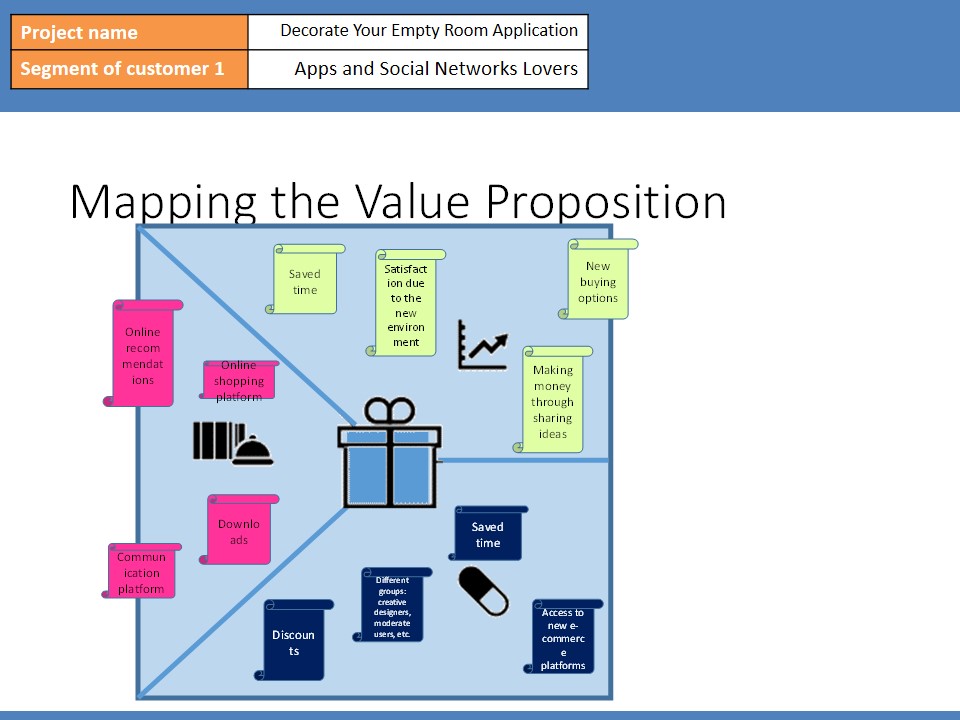
Brief Mobile Applications Market Data
- More than 100 million users nationwide (“Statistics and Market Data on Mobile Internet & Apps”).
- 31.2% of website traffic comes from mobile devices (“Percentage of Website Traffic”).
- The revenue of the market of mobile social networking is expected to be almost $2 billion (Abraham 144).
- Google Play and Apple App Store are key players that together make 90% of global app revenues.
The social networking is especially important as the application Decorate Your Room is characterized by a high degree of connectivity, which is seen as one of its potential advantages.
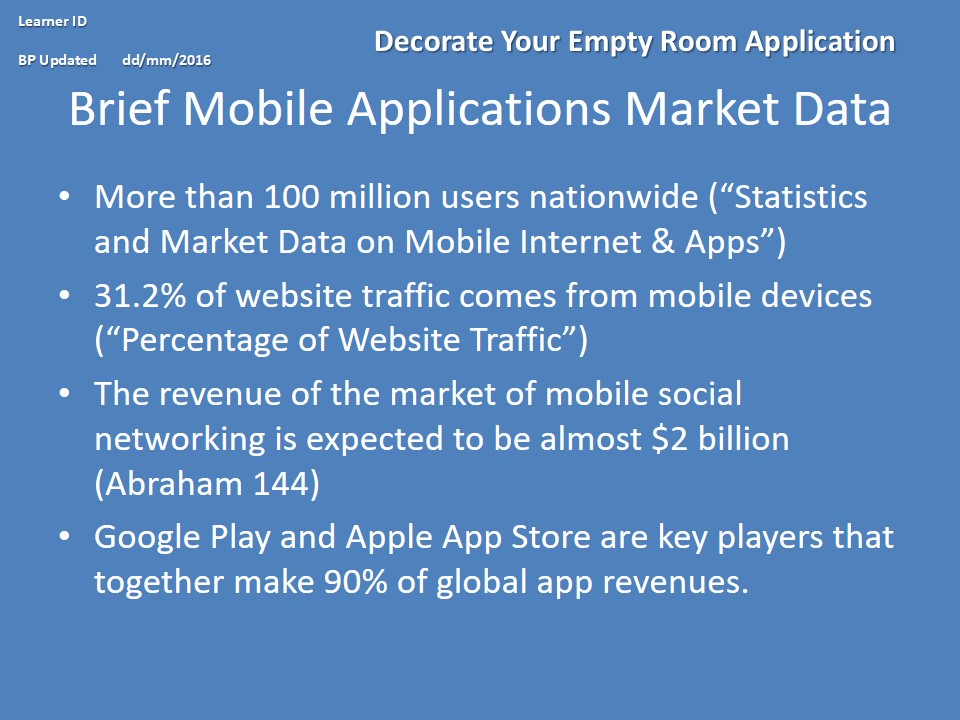
Analysis of the Industry
- Threats of New Entry:
- Not quite expensive to enter the industry.
- Limited barriers to entry.
- Some economies of scale.
- Buyer Power:
- Thousands of users.
- Low ability to substitute.
- Medium switching costs.
- Threats of Substitution:
- Few people may draw their decors.
- Using online sellers is less convenient.
- Sharing ideas in social networks involves larger contexts.
- Supplier Power:
- Platform providers are numerous but there are key players.
New entry is quite easy as it is not too expensive to enter. There are only a few restrictions including some privacy laws, copyright regulations. There are also some economies of scale as larger producers of apps can enter the market with their well-established marketing channels and reputation.
The threat of substitution is rather low.
The buyer power is also quite low as there are thousands of potential users who are unlikely to substitute the service.
The supplier power can be quite high as such largest providers as Apple or Google have platforms that dominate the industry.
Competitive rivalry is very high as there are such key developers as Apple, Google, Microsoft, RIM, Nokia. There are also smaller developers.
It is necessary to note that the industry is quite difficult to operate or even survive in. Thus, it is essential to focus on loyal customers and create a community of loyal customer. Constant upgrade and innovation are vital.
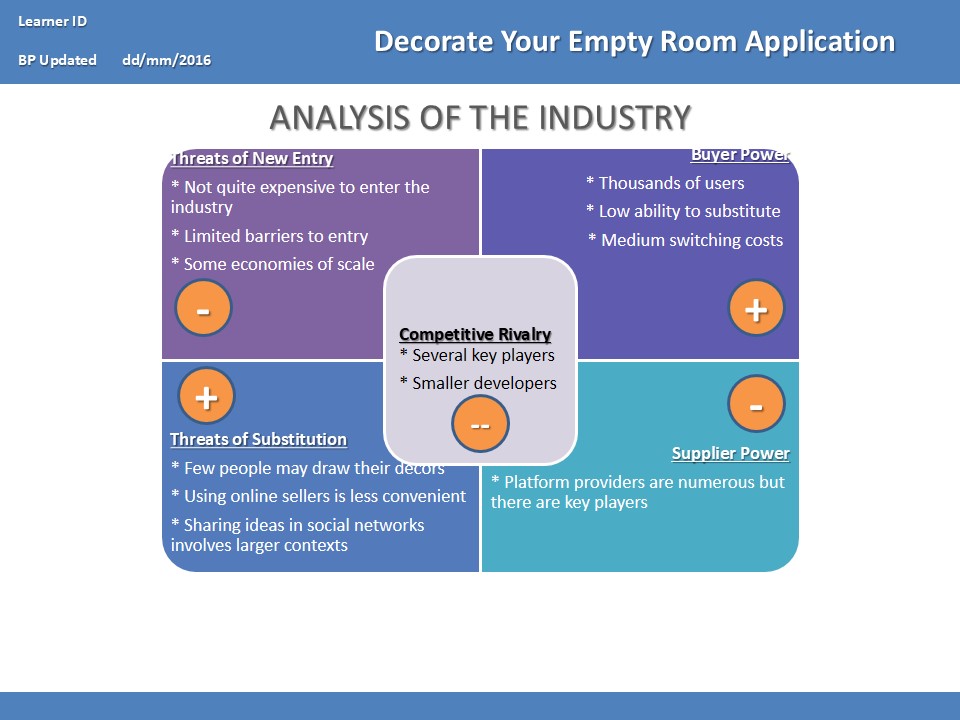
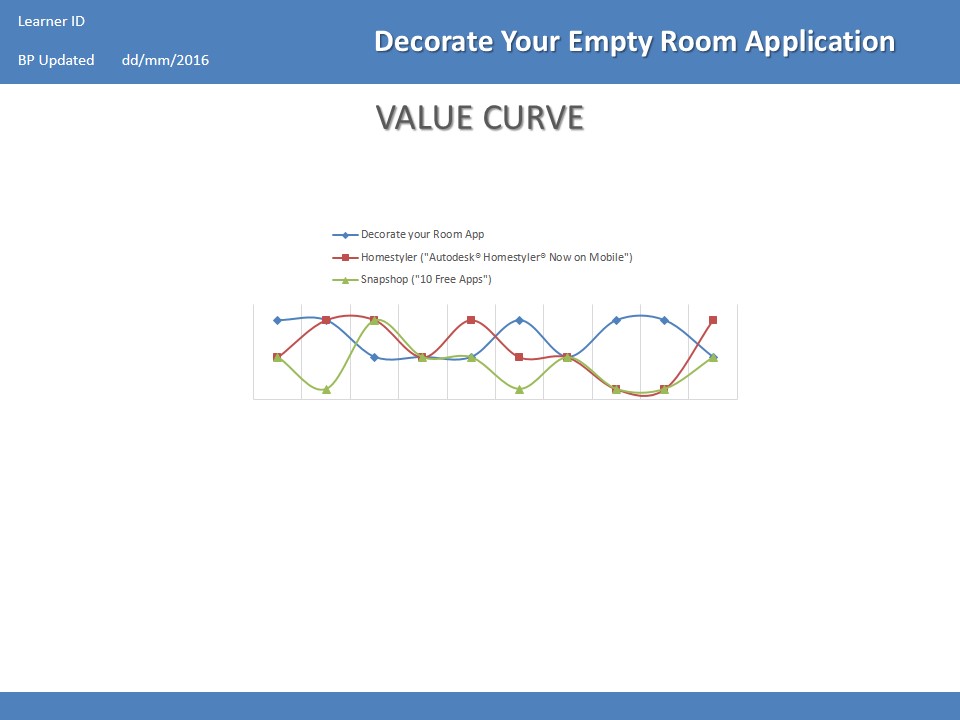
Blue Ocean Strategy
It is possible to apply the blue ocean strategy to understand the areas to improve (Kim and Mauborgne 38). It is clear that it is vital to eliminate complexity as user-friendliness is the central value. The price should also be reduced to attract more customers. It is possible to offer some discounts at the initial stage. Creation of deeper connectedness is crucial as this is also an important value for the customers who want to be a part of a larger community. It is important to improve the graphics which is one of the advantages of the competitors. Raising delivery options through well-established platforms can contribute to the development of the favorable reputation.
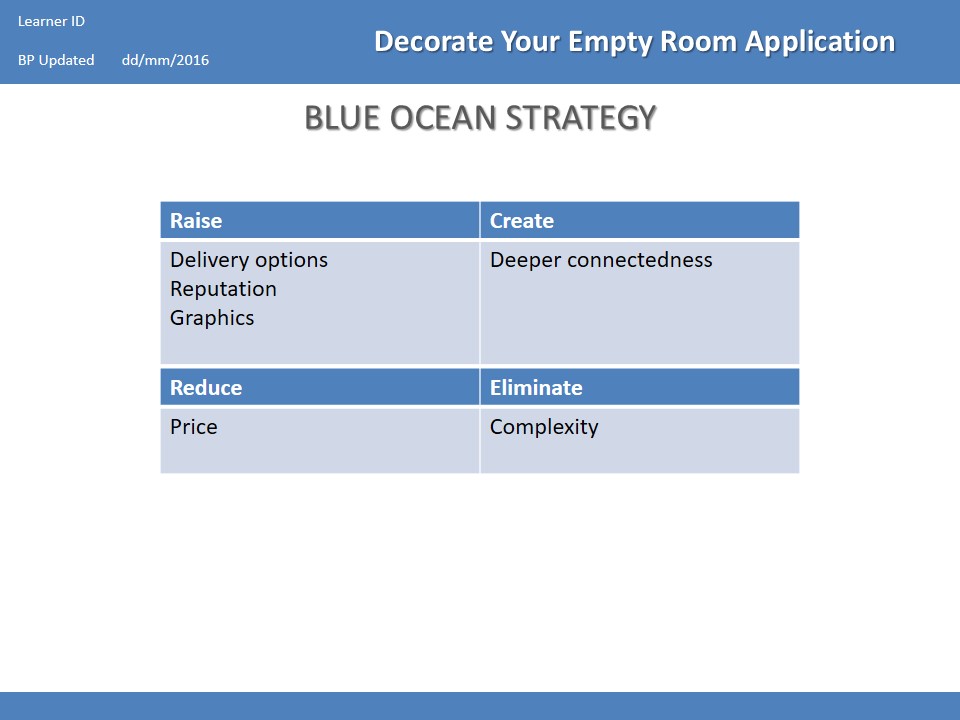
IPR Strategy
- Trade Mark:
- The app will be associated with a brand (Jolly 19).
- The app will stand out against the rest.
- The app will be safe from replicas.
- Patent:
- Innovation is the core priority.
- Any innovative idea cannot be used by competitors.
The IPR strategy will involve two major phases. The development of a trade mark is crucial as the app will be associated with a brand. This will help create the community of users, which is one of the strategic priorities. The trade mark will also help the app stand out against similar products, and it will be protected from replicas if any. Acquiring patents is another priority. The app involves the software that optimizes searching (online sellers’ items).
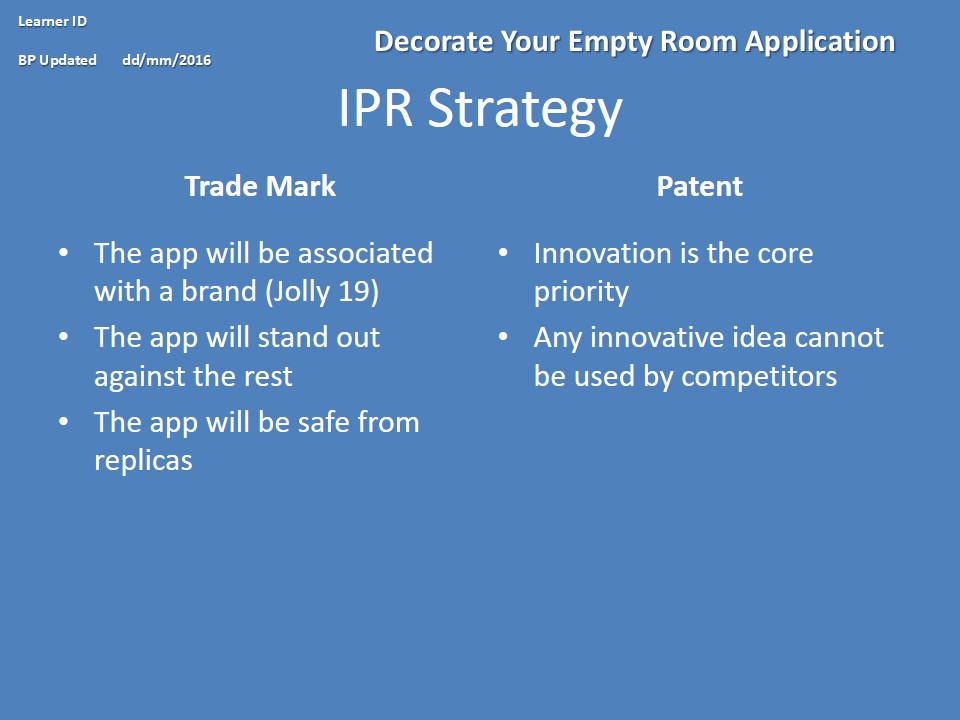
MVP Design
- Hypothesis: Users love buying online and are eager to try items at once.
- Test tools: Survey & interviews.
- Result: The majority of users (83%) agree with the statement.
- Hypothesis: Users are eager to pertain to a digital community.
- Test tools: Survey & interviews.
- Result: The majority of users (73%) would like to pertain (or pertain) to some digital community.
- Hypothesis: Users are willing to make money through apps.
- Test tools: Survey & interviews.
- Result: The majority of users (91%) would like to make money.
- Hypothesis: Users are willing to buy designs and ideas from trusted (high-ranking) members of the community.
- Test tools: Survey & interviews.
- Result: Only 32% would consider buying some ideas while only 13% would definitely buy some ideas.
It is possible to check three hypotheses that are consistent with the three major competitive advantages of the product. The testing tool used will be surveys and interviews with mobile apps users. The first hypothesis is concerned with the option of buying items, trying items from online sellers. 83% of respondents strongly agree with the statement.
The second hypothesis dwells upon the concept of connectedness. 73% of respondents positively see pertaining to a digital community and are eager to be a part of some communities. These two designs help acknowledge the benefits of the strategy chosen. It is clear that the options concerning buying/browsing online sellers and the development of the online community will be competitive advantages of the product.
The third hypothesis is related to the concept of selling ideas and designs. 91% of respondents are willing to make money using their mobile devices and exploring their creativity. However, only 13% would buy such ideas, which makes the option less attractive. At that, it has some potential as over 30% of respondents would consider buying. Thus, the option of selling and buying ideas should be available.
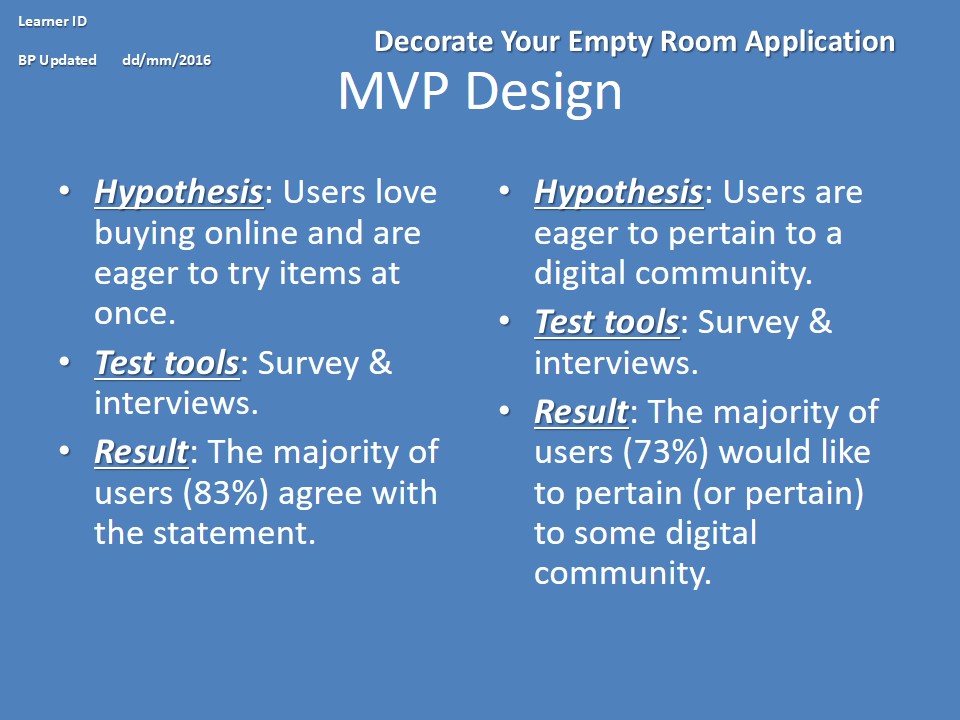
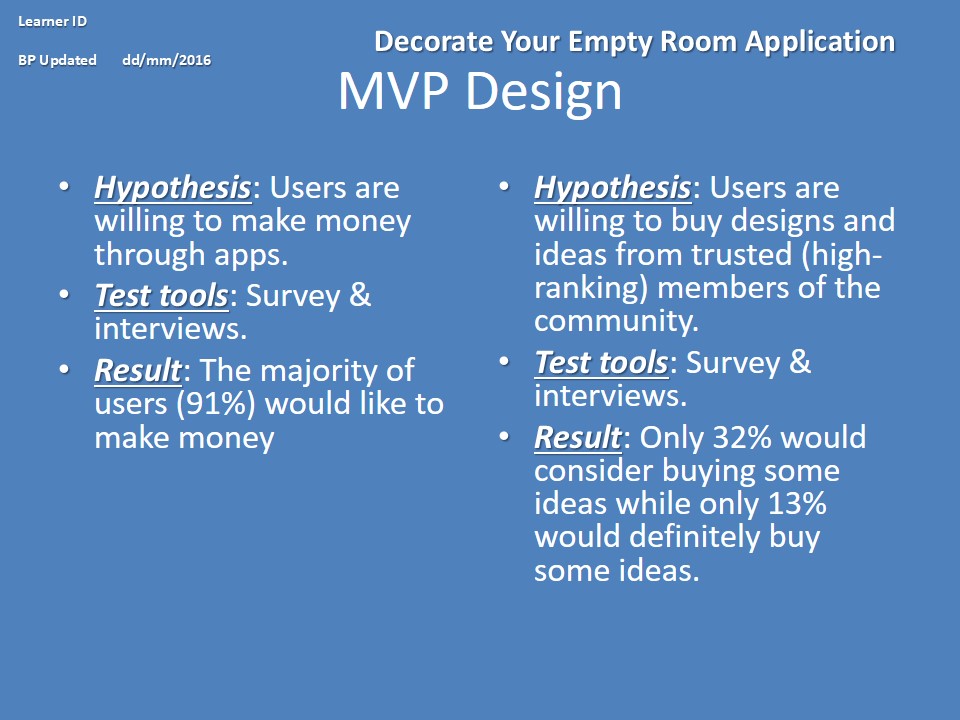
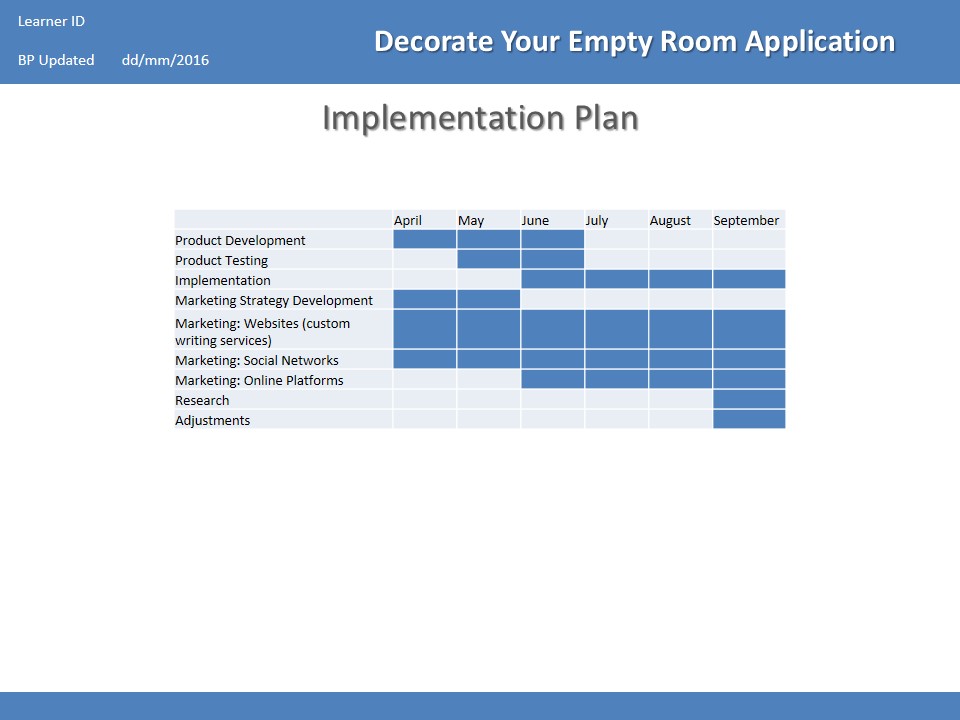
Budget
- Development: $10,000;
- Apple Store fee: $200 (for the 2 years);
- Google Play fee: $25;
- Other platforms fees: $250;
- Marketing through social networks, websites: $1,000.
Total: $10,975.
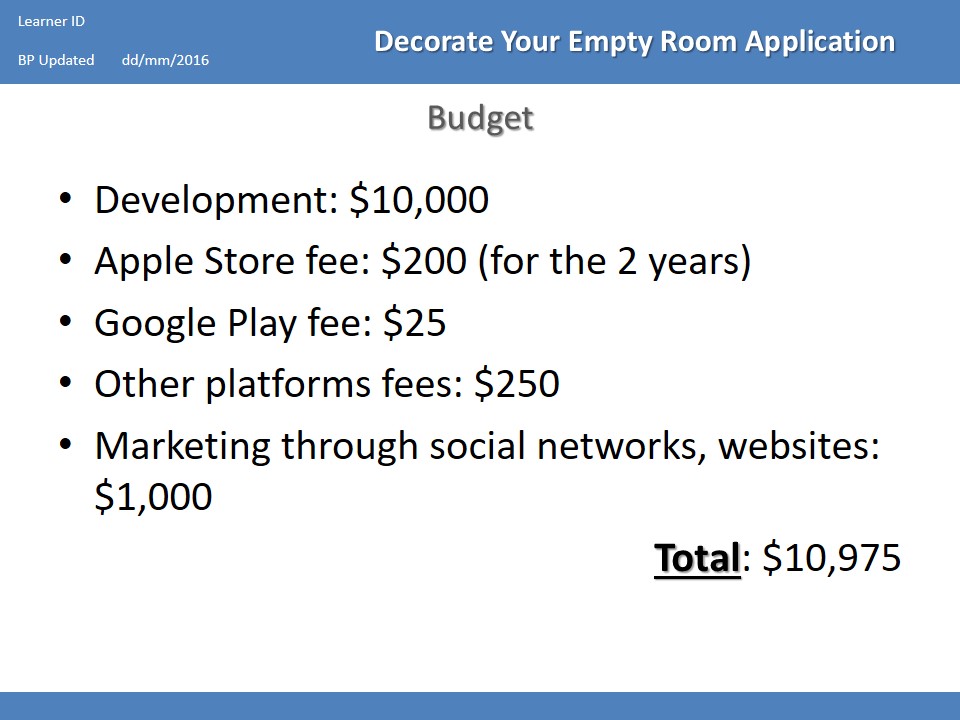
Works Cited
10 Free Apps That Will Change How You Decorate. 2016. Web.
Abraham, Priya. Cyberconnecting: The Three Lenses of Diversity. Burlington: Gower Publishing, 2015. Print.
Autodesk® Homestyler® Now on Mobile. 2015. Web.
Jolly, Adam. The Handbook of European Intellectual Property Management: Developing, Managing and Protecting Your Company’s Intellectual Property. Philadelphia: Kogan Page Publishers, 2015. Print.
Kim, W. Chan, and Mauborgne, Renee. Blue Ocean Strategy, Expanded Edition: How to Create Uncontested Space and Make the Competition Irrelevant. Boston: Harvard Business Review Press, 2015. Print.
Percentage of website traffic coming from mobile devices from 4th quarter 2010 to 1st quarter 2014. 2016. Web.
Statistics and Market Data on Mobile Internet & Apps. 2016. Web.